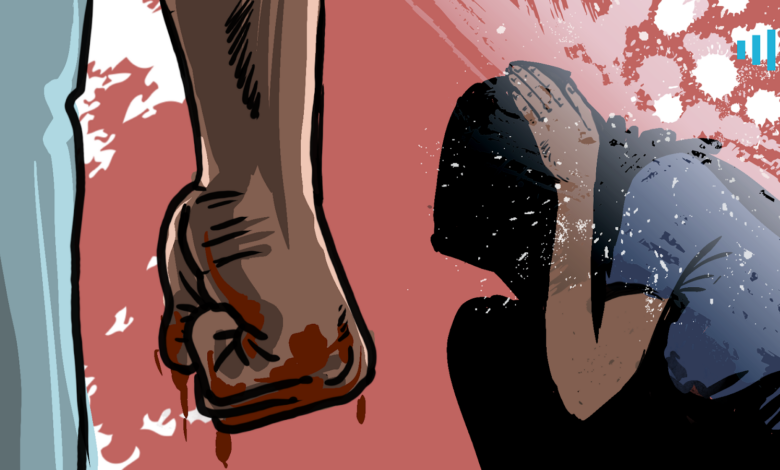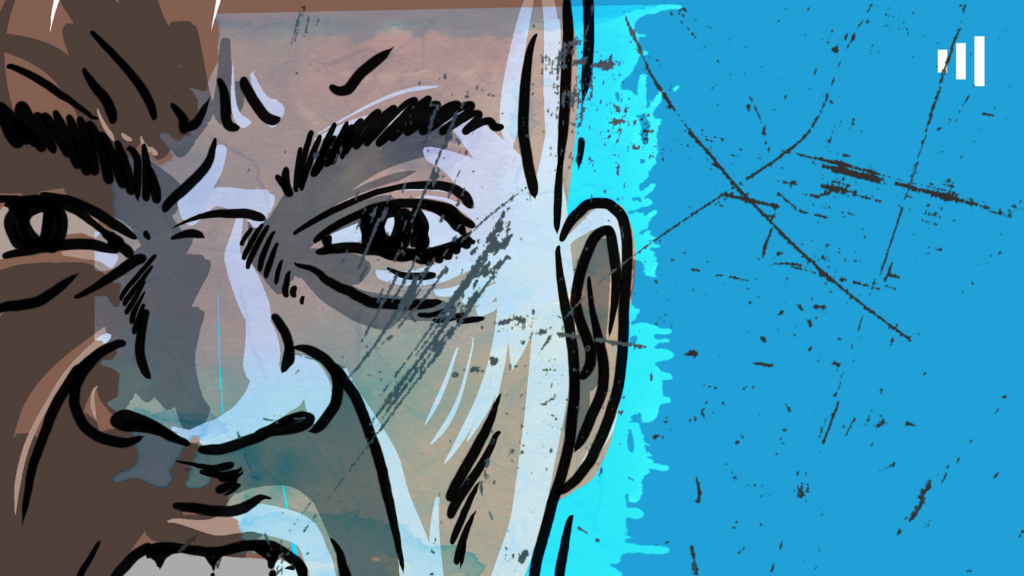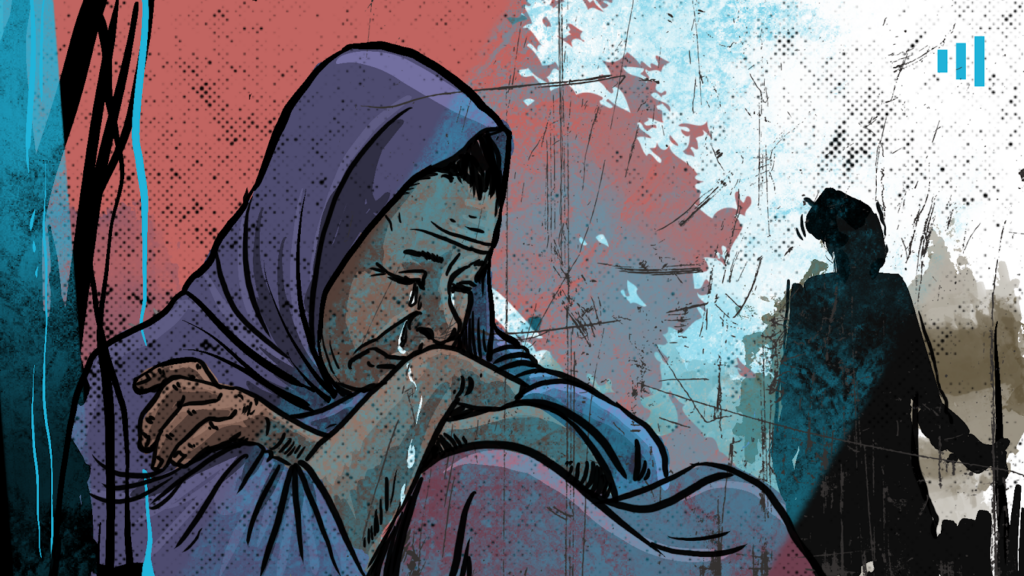Her Husband Promised To Either Kill Or Cripple Her. Hours Later, He Accomplished One.
In many cultures and religions, it is unheard of for women to decline sex when prompted by their husbands. In fact, under Nigerian laws, marital rape is not recognised. So when Huraira rejected her husband's advances, he was emboldened to react violently.

On the day Huraira Buba now recognises as her last day with two functional legs, her husband had made her one promise: He would either kill her or cripple her. Before that period, she had not seen him in years.
They were based in Maiduguri, northeastern Nigeria, during the better years of their marriage, which started in 2007. Those years were peaceful, she told me. They were not bountiful because there were days they went to bed without food, but the days were peaceful, and they managed. Even after he married a second wife, things remained largely peaceful.
She and her co-wife lived in the same compound, while their husband went away every now and then to Kaduna in the country’s northwestern region, where he was a farmer as well as a cattle trader.
Twelve years into Huraira’s marriage, her co-wife died. Even though Huraira had no children of her own, her husband’s continued absence threw her into a deeply deplorable situation. Her co-wife had left behind seven children. Worse, his absence grew longer and longer each time he left, and he was not interested in sending any money or foodstuff to her. Even though she was a teacher at a small primary school nearby, her earnings were insufficient to support her and the children. Later, she learned he had married another wife in Kaduna.
“Often, I would ask him over the phone, ‘What’s going on with you? These children have gotten used to me, yes, but their mother has passed away. They need you more than me. Every few days, one of them will say to me, ‘Please call my father,’ and I’ll call you; you’ll tell me you’re coming, but you won’t call back.’
“These children hold other people’s father’s hands like their own, I don’t like it at all,” Huraira says.
After one absence that lasted nearly three years, he came home with empty pockets and a mouth full of accusations. He said people had told him she was a drug addict, a drunkard, and someone who traded her body for money. Huraira did not understand these accusations. She had been married to the man for over a decade. How was it that a stranger would tell him these things about her, and he would deem them true?
Even after that visit, which he made only because his son was getting married, Huraira says he did not stop making accusations against her over the phone after he travelled back to Kaduna. Whenever she called him over the phone to ask for money to feed his children, he would ask her to rely on the proceeds from “her prostitution.”
During the other few times he returned to visit, he ended up borrowing money from her rather than giving her.
One day in April 2023, he returned home after a long time away to spend a week. During that visit, he demanded sex from her. By this time, any affection she had left for him had evaporated with the years he spent apart from her, ignoring her own needs. She did not feel up to it. This enraged him.
In many cultures and religions, and even by law, it is unheard of for women to decline sex when prompted by their husbands. In fact, under Nigerian laws, marital rape is not recognised.
Huraira’s husband spent hours raining insults on her that day, from dawn till dusk. She avoided him the whole day by seeking refuge in the children’s room and then by sitting on the veranda in the public glare of the neighbours so that he would not have the privacy required to harm her as she feared he would and as he had done before for the same reason during a previous visit.

It was as she sat there on the veranda while he rained insults on her that he made her that promise. “If I don’t kill you today, I will cripple you,” he said. Slowly, as the day was ending, he seemed to grow tired, and the outburst reduced.
She spent the better part of the night in the children’s room, but because it was such a small room, she barely had any sleep. Early the following morning, around 6 a.m., she moved back to the room she shared with her husband. She had thought that since the day had broken, he would not be able to harm her. Still, as a precaution, she lay on the couch instead of beside him on the bed.
As she drifted off, he started to tap her awake. She told him she was exhausted and had hardly had any rest throughout the night because of him.
“I said to him, ‘It’s been a whole week in this house; you haven’t allowed me to sleep peacefully. Leave me now, and let me get some sleep. Yesterday, I couldn’t get up on time to observe my night prayers. Today, it’s been three days, and you haven’t let me sleep. Won’t you leave this weekend? Let me sleep and rest.’”
He told her he only wanted to speak to her and it would not take much time. At first, she continued to protest, but he did not sound much like the troublemaker he had been during the past week; he sounded calm, so she listened to him. In retrospect, she thinks she should have known. “But once something has been ordained to happen to you, you can’t escape it no matter what.”
She brought one leg down. Just as she tried to bring down the other leg, she suddenly saw him swerve into where she was, grabbing both her legs and violently dragging her off the couch and onto the floor with a force that made the back of her head hit the floor with a shocking impact. The pain travelled through the length of her body as she suddenly found herself on the floor, screaming. Before she could make sense of what was going on, he had sat firmly astride her aching body and put one palm over her mouth to trap her screams. With the other hand, he wrapped her neck and began to strangle her.
It was then it occurred to her that when he said he would kill her earlier that day, he was not joking. Slowly, life started to leave her body, and her struggles became weaker. Noticing this and likely believing she would not be able to scream anyway, he took his palm off her mouth and joined it with the other palm wrapped around her neck, continuing to strangle her. She summoned the strength to scream for help then. One of her wards heard and went out to get the neighbours to help. Knowing her husband’s tendency to be violent towards her and fearing for her life, Huraira had told the girl before that if she ever heard her screaming, she should call for help.
By the time he was forced to get off her, her legs, which were trapped under the couch, had become almost immovable. She was powered only by the human instinct for survival to drag herself out of the house. As she tried to get up, she kept falling over. She was bleeding; she had a fractured hand and legs that were severely injured. Her whole body was bruised. Even when she hid in one of the neighbours’ rooms, he emerged from their room, crazed and demanding to know from them where she had gone.
“I was sitting inside, my body was shaking, there was nothing I could do,” Huraira remembers. As she speaks, tears gather in her eyes.
When she eventually escaped, she made her way to a chemist. There, she received first aid, including two injections. She started to head towards a relative’s house for safety.
“There’s a woman who sells bean cake on the road. She said to me, ‘Aunty, someone is speaking to you,’ and as I turned around to see who it was, I saw him [her husband] charging towards me.”
Terrified, she ran into the nearest house even though she did not know whose house it was.
“I spent 40 minutes in that house. He was waiting for me outside, saying that immediately I came out, he would do something to me that I wouldn’t like.”
Eventually, he got tired of waiting and left. Huraira made it to one of her sisters’ house safely later that day.
It has been over a year now, and Huraira has not recovered. If anything, her situation continues to worsen. She can no longer walk without assistance and has little help around the house. Her face has darkened and wrinkled, so much so that it is a shock when she reveals her age as 48.
“He did this to me intentionally. I know because he was telling my neighbour that women like me who are stubborn, this is what we deserve and that what he did to me was right. That’s to tell you that he did this so that I could feel pain. He knows that I have a future,” and here, Huraira begins to weep. She weeps for a long time in what looks like a mixture of anger and self-pity.
“I was doing so well,” she sobs. “I was teaching at this primary school over there. Now look at me. Look at me.”
Beyond the physical manifestations of the violence done to her, there is also the psychological struggle. She still feels in danger because her husband, who has refused to grant her a divorce, has also not ceased disturbing her. There are days he leaves her up to ten missed calls, she says. On other days, he leaves her several threatening messages. During the course of my interview with her, he called her twice on the phone, which she ignored.

“Sometimes, when he calls me, he tells me what he has done to me is small. I have not seen anything yet… What did I do to him? What did I ever do to him?”
It is not that she has not sought protection from authorities, Huraira says.
She has been to the National Human Rights Commission (NHRC), from where she was referred to the Borno state chapter of the International Federation of Women Lawyers, commonly known as FIDA. Huraira told HumAngle that she was given a referral letter by the organisation and asked to travel all the way to Kaduna state, where her husband is based and lay a complaint with the FIDA branch there. However, Huraira cannot undertake any travel because of her condition.
HumAngle reached out to FIDA Borno about this, and they confirmed their stance on the matter.
“We understand that the man hardly comes to Maiduguri; he comes only about once in a year. So we wrote her a referral letter and I also provided her the address and phone number of the office in Kaduna,” said Maimuna, the FIDA representative we spoke to.
We explained to her that the violence done to Huraira had rendered her immobile, and there was no way for her to travel to Kaduna realistically. She acknowledged this and promised to find a way to move the matter forward.
Huraira can hardly believe what has become of her life.
“I can’t even stand up from here now until someone helps me up,” she laments. “It’s been a whole year and some months. We’re now in May and entering June. As I speak to you now, I need to have surgery on my legs. It costs ₦3 million. Before this, I’ve spent money — over ₦300,000.”
She used to note down how much she was spending, but each time she looked at the list and saw how high the amount was, it would cause her more pain. And so she stopped writing it down.
Months after HumAngle’s interview with Huraira, her condition deteriorated, causing her to be hospitalised in the orthopaedic department of a hospital. The cost of her surgery has also increased to ₦4 million. She has been able to raise about ₦1 million on her own, and she also has a kind doctor who has been sympathetic to her condition. He has done the surgery on one of her legs. She hopes to be able to get the surgery done for the other leg.
Right now, she wants to feel safe from the man who has caused her this much pain. She wants to be no longer married to him legally, and she wants him to pay every kobo she has had to spend on medical bills, in addition to all the money she has lent him in the past.
She knows these are lofty dreams, so right now, she just wants to be able to walk again.
Summary not available.
Support Our Journalism
There are millions of ordinary people affected by conflict in Africa whose stories are missing in the mainstream media. HumAngle is determined to tell those challenging and under-reported stories, hoping that the people impacted by these conflicts will find the safety and security they deserve.
To ensure that we continue to provide public service coverage, we have a small favour to ask you. We want you to be part of our journalistic endeavour by contributing a token to us.
Your donation will further promote a robust, free, and independent media.
Donate HereStay Closer To The Stories That Matter




